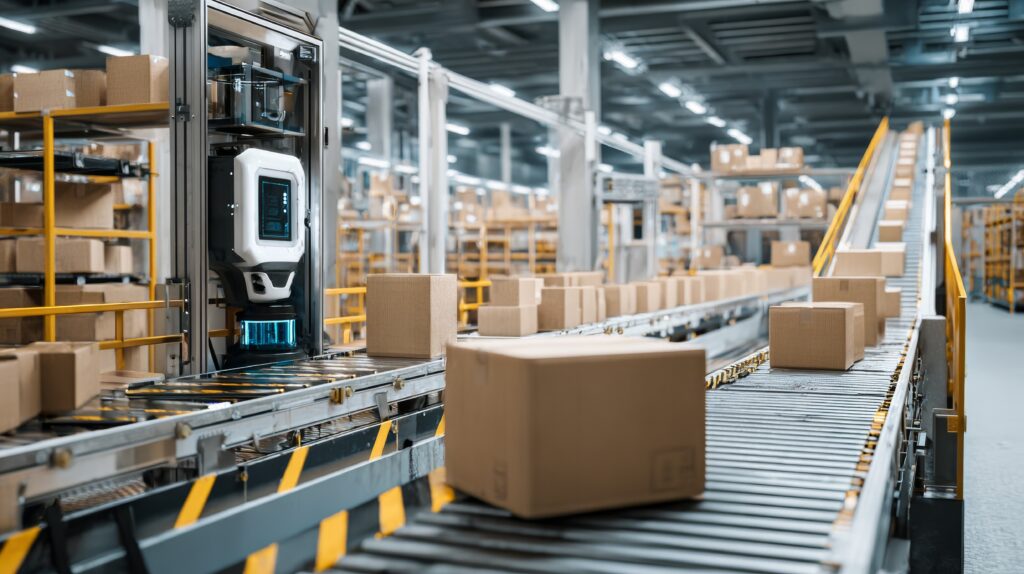Utnyttja AI för förbättrade logistikoperationer
Logistik- och fraktindustrin bevittnar en omvandling med integrationen av intelligenta AI-system. Dessa innovationer stöttar team som strävar efter att förbättra effektiviteten och kundnöjdheten.
Globala utmaningar inom leverans
Varje år korsar miljarder paket och försändelser internationella gränser och statsgränser och navigerar i en labyrint av språk, kulturer och tidszoner. Att hantera dessa globala verksamheter innebär betydande utmaningar. Att uppnå pålitlig kundsupport visar sig vara skrämmande mot bakgrund av fluktuerande krav och oförutsägbara toppar i fraktvolymer. Även när en slående 99,8% av transaktioner fortlöper smidigt, översvämmas logistikleverantörer med miljontals potentiella förfrågningar.
Dessutom anstränger betydande arbetskraftsbrist i kontaktcenter och ökande förväntningar på snabba digitala tjänster kundserviceteamen till deras gränser. Fragmenterade system som TMS (Transportation Management Systems), WMS (Warehouse Management Systems), ERP (Enterprise Resource Planning) och CRM (Customer Relationship Management) skapar hinder för att upprätthålla fullständig synlighet, vilket i sin tur saktar ner lösningstiderna och frustrerar både personal och kunder.
AI:s roll inom kundsupport
För att hantera dessa komplexiteter anammar multinationella rederier, som DHL, banbrytande AI-lösningar. Dessa intelligenta system erbjuder människo-liknande interaktioner på olika språk och slutför sömlöst arbetsflöden med en grad av resonemang och autonomi som förbättrar kundsupporten.
Att skilja AI från traditionella chattbottar
Smarta AI-system skiljer sig markant från konventionella chattbottar. De följer inte bara skript eller förlitar sig enbart på nyckelordsidentifiering; snarare förstår de verkligen språkliga nyanser och växlar enkelt mellan språk. Till exempel, när en kund frågar: "Jag väntar ett paket, och det gör min inneboende också", skulle AI:n svara intelligent: "Så, vi diskuterar två paket? Kan du ange sändningsnumret eller -numren om det är separata beställningar?"
Denna förmåga att förstå sammanhang förbättrar konversationsflödet. AI-system kan integrera variabler som leveransfönster eller tillfälliga vägförhållanden i sina svar. De kommer ihåg sammanhanget under komplexa diskussioner och arbetar över olika kanaler, vilket ger hjälp när och där kunderna behöver det.
Autonom problemlösning
AI-agenter utmärker sig genom att vara proaktiva. De initierar och genomför arbetsflöden utan att kräva direkta mänskliga uppmaningar, förutsatt att det ligger i linje med deras mål. Till exempel, om en fraktförsening uppstår kan AI snabbt informera kunder, bekräfta nya leveranstider och utarbeta lämpliga lösningar. Sådana system kan till och med ta initiativ till att skicka påminnelser om sena betalningar.
AI:s inverkan på DHL:s globala verksamhet
DHL fungerar som ett utmärkt exempel på hur AI optimerar logistik. Med över 15 miljarder försändelser per år resulterar deras 0,2%-förfrågningsfrekvens fortfarande i över 30 miljoner kundinteraktioner varje år. Med en alltmer diversifierad global kundbas behövde DHL ett flerspråkigt supportsystem som kunde överbrygga tidszoner för att hantera sin enormitet effektivt.
Införandet av Paula, AI-röstagenten, har varit avgörande. Genom integrering med plattformar som CRM, SAP och Salesforce har Paula inte bara förbättrat kundnöjdheten till över 80 % utan också minskat driftskostnaderna och svarstiderna. Dessutom är Paula skicklig på att lämna över förfrågningar som kräver mänsklig fingertoppskänsla, vilket säkerställer att kunderna alltid får bästa möjliga service.
Fördelar med Agentic AI inom logistik
Att införa agentisk AI innebär ett betydande steg framåt för logistikföretag. Fördelarna är tydliga: ökad motståndskraft, effektivitet och kostnadseffektivitet. Genom att delegera rutinmässiga förfrågningar med hög volym till AI-system kan mänskliga medarbetare rikta om sina ansträngningar mot mer komplexa interaktioner som kräver personlig kontakt. Dessutom får kunderna snabbare svarstider och full digital support, vilket speglar ett alltmer strömlinjeformat logistiklandskap.
Slutsats: Omfamna framtidens logistik
Den erfarenhet och teknologiska integration som erbjuds av intelligenta AI-system kan drastiskt förbättra logistikverksamheten. Medan recensioner och feedback från användare ger värdefulla insikter, slår inget förstahandserfarenhet när det gäller att förstå dessa framsteg. Med GetTransport.com kan användare effektivt ordna sin godstransport till globalt konkurrenskraftiga priser utan att spräcka budgeten. Detta säkerställer att logistik- och fraktlösningar är tillgängliga, pålitliga och bekväma för alla. Utforska dina alternativ, kom ihåg att inte ens de bästa systemen kan ersätta personlig service varje gång, och dra nytta av den prisvärdhet och flexibilitet som erbjuds av GetTransport.com. Boka din godstransport idag på GetTransport.com.

 Hur intelligent AI revolutionerar logistik- och sjöfartssektorn">
Hur intelligent AI revolutionerar logistik- och sjöfartssektorn">